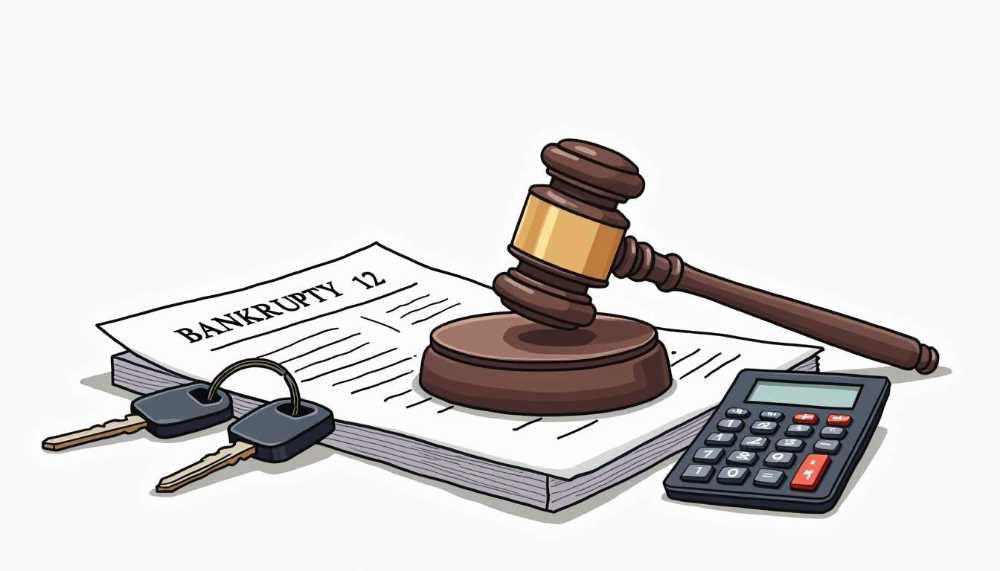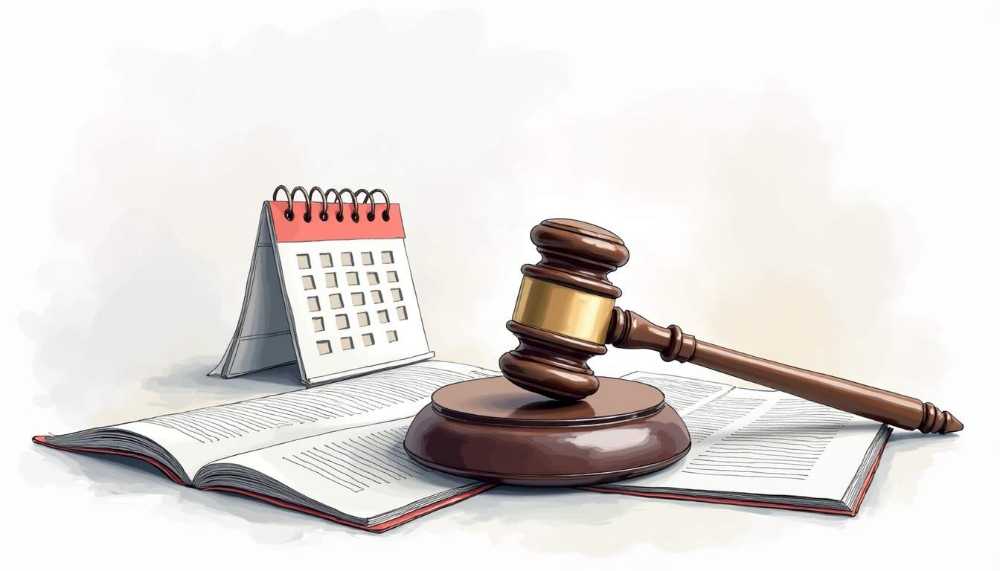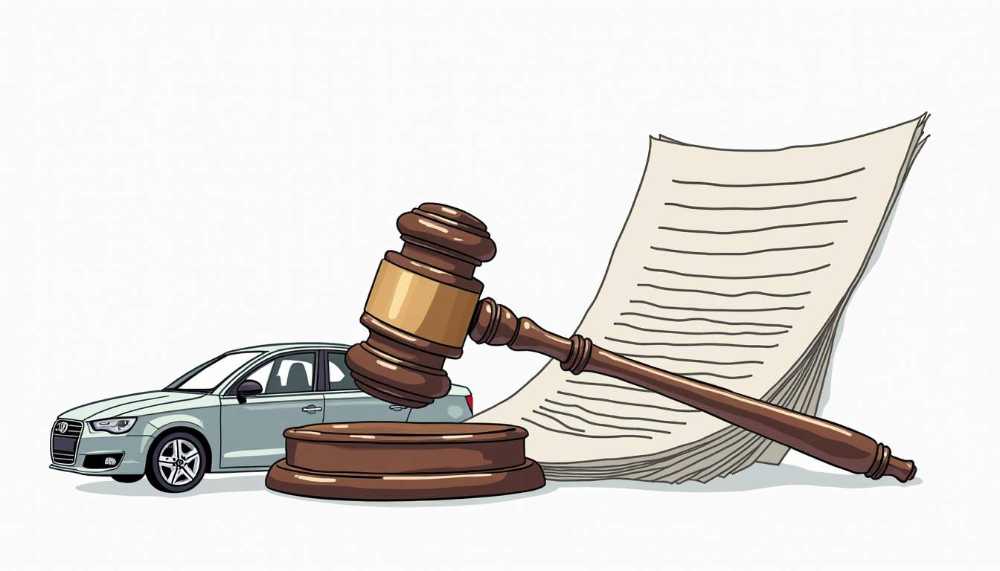Understanding the relationship between bankruptcy laws and car loan modifications is essential for anyone facing financial difficulties. This article explores the key aspects of bankruptcy laws, their impact on car loans, recent changes, and what the future may hold for borrowers.
Understanding Bankruptcy Laws
Bankruptcy laws are designed to provide individuals and businesses a way to alleviate overwhelming debt. They exist to ensure fair treatment of creditors while giving borrowers the opportunity for a fresh start. Understanding these laws is crucial for making informed decisions about your financial future.
The Basics of Bankruptcy Laws
Bankruptcy is a legal process that allows individuals or entities to discharge certain debts, thereby obtaining relief from creditors. The process depends on both federal and state laws, with federal bankruptcy laws serving as the foundation. In general, bankruptcy can help people get a handle on their finances, manage overwhelming debt, and even prevent foreclosure on property.
In the United States, the primary types of bankruptcy for individuals are Chapter 7 and Chapter 13, which have different implications for debtors. While Chapter 7 entails the liquidation of non-exempt assets to repay creditors, Chapter 13 allows individuals to create a repayment plan to pay back their debts over time. Additionally, there are other forms of bankruptcy, such as Chapter 11, typically used by businesses to reorganize and keep operating while repaying creditors, and Chapter 12, which is specifically designed for family farmers and fishermen to restructure their debts while maintaining their operations.
Types of Bankruptcy: Chapter 7 and Chapter 13
Chapter 7 bankruptcy, often referred to as "liquidation bankruptcy," is designed for those who cannot repay their debts. In this type, the bankruptcy trustee sells off non-exempt assets to cover creditors, offering a "fresh start" in a matter of months. However, certain assets may be exempt from liquidation, allowing individuals to retain essential property such as a primary residence, vehicle, or necessary personal belongings, which can be a significant relief for those facing financial turmoil.
Conversely, Chapter 13 bankruptcy is suitable for individuals with a regular income who can manage a repayment plan. It allows debtors to propose a repayment schedule over three to five years, allowing them to retain their assets. This type of bankruptcy can be particularly beneficial for individuals who are behind on mortgage payments, as it provides an opportunity to catch up on missed payments while keeping their home. Furthermore, Chapter 13 can also help eliminate certain unsecured debts, such as credit card debt, once the repayment plan is completed, giving individuals a clearer path to financial stability.
The Impact of Bankruptcy on Car Loans
For many individuals, cars are essential for daily activities like commuting to work or carrying out family responsibilities. However, filing for bankruptcy can profoundly affect your current car loan and your ability to modify it. Knowing the implications of bankruptcy on car loans can help you navigate these troubled waters more effectively.
How Bankruptcy Affects Your Current Car Loan
When you file for bankruptcy, any existing car loans may be impacted depending on the type of bankruptcy you choose. Under Chapter 7 bankruptcy, you might be required to surrender the vehicle unless you can reaffirm the loan. Reaffirmation means that you agree to continue paying the loan, allowing you to retain possession of the vehicle.
In contrast, if you choose Chapter 13 bankruptcy, you may have the option to modify the car loan. This can involve reducing the amount owed to the current market value of the vehicle, making repayment more manageable. This is particularly beneficial for individuals who owe more on their car than it is currently worth, a situation often referred to as being "upside down" on a loan. By adjusting the loan to reflect the vehicle's true value, borrowers can alleviate some of the financial strain that comes with high-interest payments on depreciated assets.
The Process of Car Loan Modification in Bankruptcy
Car loan modification during bankruptcy is a structured process designed to aid borrowers in adjusting their payment terms without losing their vehicle. It typically occurs within a Chapter 13 repayment plan, where you can negotiate better terms with creditors.
The process includes filing a bankruptcy petition, proposing a repayment plan that includes car loan modifications, and obtaining the court's approval. It's essential to communicate with your lender throughout this process to ensure a smooth transition. Additionally, working with a bankruptcy attorney can provide invaluable guidance, as they can help you understand the nuances of the law and advocate on your behalf during negotiations. This legal support can be crucial, especially when dealing with complex issues like interest rates, payment schedules, and the overall feasibility of the repayment plan.
Moreover, it's important to consider the long-term implications of bankruptcy on your credit score and future financing options. While bankruptcy can provide immediate relief from overwhelming debt, it can also remain on your credit report for several years, potentially affecting your ability to secure favorable loan terms in the future. Understanding these dynamics can help you make informed decisions not only about your current car loan but also about your overall financial health moving forward.
Recent Changes in Bankruptcy Laws
In recent years, there have been significant changes in bankruptcy laws, affecting how individuals can manage their debts, including car loans. These updates are important for borrowers to understand, as they shape the landscape of personal finance in America.
The Bankruptcy Abuse Prevention and Consumer Protection Act
Enacted in 2005, the Bankruptcy Abuse Prevention and Consumer Protection Act (BAPCPA) aimed to make it tougher for individuals to file for Chapter 7 bankruptcy while enhancing consumer protection. The law introduced a means test to determine eligibility and undoubtedly changed the way bankruptcy is approached.
As a result, many individuals had to consider other options, such as Chapter 13, which has become more popular. The BAPCPA also emphasized the importance of financial education, requiring individuals to take credit counseling courses before filing for bankruptcy. This requirement not only aims to equip borrowers with the knowledge to avoid future financial pitfalls but also encourages them to explore alternatives to bankruptcy, such as debt management plans or negotiations with creditors.
How These Changes Impact Car Loan Modifications
The changes brought about by BAPCPA have had a ripple effect on car loan modifications. The stricter means testing may limit the number of individuals eligible for Chapter 7, leading more people to consider Chapter 13, where car loan modifications are possible.
Additionally, the focus on consumer protection has led to more standardized processes for loan modifications. Borrowers are now more entitled to request modifications under the terms of their bankruptcy plan, providing them with relief from the burden of high monthly payments. This shift has allowed many to retain their vehicles while restructuring their debts, which can be crucial for maintaining employment and daily life. Furthermore, the ability to modify car loans under Chapter 13 has encouraged lenders to adopt more flexible terms, recognizing that a cooperative approach can lead to better recovery rates on outstanding debts.
Moreover, the evolving landscape of bankruptcy laws has prompted many financial institutions to reassess their lending practices. As they navigate the complexities introduced by the BAPCPA, lenders are increasingly focusing on risk assessment and borrower education. This shift not only helps them mitigate potential losses but also fosters a more informed borrower base, ultimately leading to healthier financial habits. As borrowers become more aware of their rights and options, they are better equipped to negotiate with lenders, which can result in more favorable loan terms and a smoother path to financial recovery.
Navigating Car Loan Modifications After Bankruptcy
After navigating the complexities of bankruptcy, modifying your car loan can provide a vital lifeline in your financial recovery. To achieve this, understanding the necessary steps and legal considerations is paramount.
Steps to Modify Your Car Loan After Bankruptcy
- Assess your financial situation and determine what modifications are needed.
- Contact your lender and express your intention to modify the loan.
- Submit financial documentation as requested by your lender.
- Review the new loan terms and ensure they meet your needs.
- Finalize the modification agreement and keep records for future reference.
Each of these steps plays a critical role in securing favorable loan terms after bankruptcy. Keeping lines of communication open with your lender will enhance the chances of a successful negotiation.
Legal Considerations for Loan Modifications
While navigating car loan modifications after bankruptcy, it's vital to consider the legal backdrop of your actions. There may be specific laws that protect your rights as a borrower and guidelines that lenders must follow during modifications.
It's advisable to consult with a bankruptcy attorney who specializes in financial matters to understand the nuances that pertain to your circumstances. This can prevent potential pitfalls and ensure your interests are safeguarded throughout the modification process.
The Future of Bankruptcy Laws and Car Loan Modifications
The ever-evolving landscape of bankruptcy laws suggests that additional changes may be on the horizon, particularly concerning car loan modifications. How these developments will play out remains to be seen, but certain trends are already emerging.
Predicted Changes in Bankruptcy Laws
Experts anticipate that future amendments to bankruptcy laws may further simplify the process for individuals seeking relief from crippling debt. Enhanced protections are likely to be introduced, particularly for low-income borrowers and those who rely on vehicles to navigate everyday life.
Moreover, technology may play a crucial role in this evolution, as digital platforms increasingly facilitate loan management and communication between lenders and borrowers.
How These Changes May Affect Car Loan Modifications
As laws evolve and consumer protections strengthen, car loan modifications may become more accessible and beneficial to borrowers. The focus on flexibility in repayment terms and the shift towards understanding the needs of financially distressed consumers will likely lead to more favorable conditions.
In conclusion, staying informed about bankruptcy laws and their implications for car loans is essential for making sound financial decisions. As legislation continues to change, the ability to successfully navigate these waters will be paramount for those seeking relief from debt.






